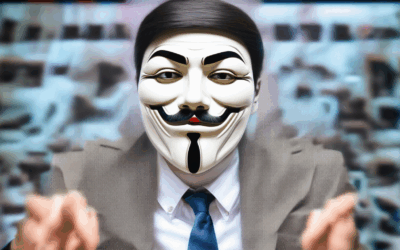In today’s digital age, the delicate balance between free speech and anonymity has become a subject of intense debate, particularly when it comes to addressing current events. While the First Amendment guarantees the right to free speech, the question arises: does it extend its protections to anonymous speech? This exploration delves into the complexities of this modern dilemma, examining how the intersection of free speech and anonymity impacts our ability to express ourselves in an increasingly connected world. From the protections afforded to journalists and activists who wish to remain anonymous, to the ethical and legal challenges faced when anonymous speech may facilitate harm, this article unpacks the multifaceted nature of this issue. By analyzing the boundaries of free speech, the advantages and drawbacks of anonymous communication, and the broader societal implications, we aim to provide a comprehensive understanding of where the line is drawn in the digital age.

Does the First Amendment Protect All Anonymous Speech?
The First Amendment of the U.S. Constitution guarantees the freedom of speech, but it does not universally protect all forms of anonymous speech. The extent of protection depends on the context and purpose of the speech.
Anonymous speech is generally protected under the First Amendment, but courts have established exceptions. For example:
- Political Speech: Anonymous speech in public forums and related to political expression is strongly protected. This includes anonymous contributions to political campaigns and online speech.
- Journalistic Speech: Anonymous sources are often protected when used in journalism, though editors and publishers may face legal consequences if they knowingly publish false information.
- Obscenity and Illegal Activities: Anonymous speech may not be protected if it involves illegal activities, such as harassment, fraud, or incitement to violence.
- Privacy Concerns: While the First Amendment prevents the government from requiring disclosure of anonymous speech, private entities may impose reasonable requirements for accessing their services, such as website registration laws.
In recent years, courts have grappled with balancing free speech with other societal concerns, particularly in the digital age. For instance, the Supreme Court has held that states may require identification for voter registration, but this does not infringe on anonymous speech in other contexts.
Ultimately, the First Amendment protects anonymous speech unless it is used to commit crimes or harm others. The balance between privacy and free expression remains a central issue in modern legal discourse.
What Are the 5 Limits to Freedom of Speech?
Freedom of speech is a fundamental right, but it is not without boundaries. Governments and societies often impose limits on what can be said to protect public safety, national security, and societal values. Below are five primary limitations:
- Incitement to Violence : Speech that directly advocates for violence or hatred against a group of people based on race, religion, gender, or other characteristics is illegal in many countries.
- Defamation : False statements that harm someone’s reputation can be legally addressed through lawsuits.
- Fraud : Misleading or deceptive information intended to gain financial or personal advantage is restricted by law.
- Obscenity : Material deemed sexually explicit or vulgar may be prohibited to protect public morals and decency.
- Child Pornography : Any form of child exploitation or abuse is universally condemned and criminalized.
These limits are in place to balance individual freedoms with collective responsibilities, ensuring a harmonious society while protecting vulnerable populations and maintaining order.

What is Good About Anonymous Speech?
Anonymous speech has several advantages that contribute to a healthy and vibrant public discourse. Here are some key benefits:
- Protection of Privacy: Anonymity allows individuals to express themselves without fear of retribution or identification, safeguarding personal privacy and enabling free expression.
- Shielding Whistleblowers and Activists: Anonymous channels provide a safe space for whistleblowers and activists to share critical information without risking their safety or career.
- Holding Power Accountable: Anonymous speech can expose misconduct and mismanagement, encouraging transparency and accountability among institutions and public figures.
- Fostering Innovation and Creativity: Anonymity can embolden individuals to share unique ideas and perspectives, driving innovation and enriching public discourse.
- Preventing Censorship: In cases where sensitive information or controversial viewpoints may lead to persecution, anonymous speech ensures that individuals can still contribute to important conversations.
Anonymous speech is particularly valuable in online platforms like AnonyPost , where users can share their thoughts and opinions without fear of judgment or reprisal. This freedom not only enhances individual rights but also contributes to a more informed and engaged society.

What Speech is Not Protected by the First Amendment?
The First Amendment protects freedom of speech, but there are exceptions. Here are some types of speech that are not protected:
- Incitement to Imminent Violence: Speech that directly advocates for immediate unlawful actions, which can threaten public safety.
- Hate Speech: While often protected, speech that incites hatred or violence against a group based on race, religion, gender, etc., may not be protected if it creates a substantial risk of harm.
- Obscenity: Material deemed lewd, lascivious, or depraved can be restricted if intended to corrupt or degrade.
- Defamation: False statements that harm someone’s reputation can lead to legal consequences.
- Speech Threatening National Security: Espionage or aiding foreign enemies can undermine national security and be prohibited.
- Harassment or Stalking: Threatening or intimidating speech aimed at causing fear can be restricted.
What is an example of unprotected speech?
Unprotected speech refers to forms of expression that are not protected under the First Amendment to the U.S. Constitution. These types of expressions may violate legal standards due to their potential harm to others or society.
Examples of Unprotected Speech:
- Hate Speech: Statements that incite hatred or violence against a particular group based on race, religion, gender, or other characteristics. For example, publicly declaring intent to harm a specific group in a discriminatory manner can be considered unprotected speech.
- Threats of Violence: Verbal threats of harm directed at specific individuals, especially if intended to cause fear or intimidation, are often classified as unprotected speech. For instance, threatening someone on social media with bodily harm can lead to criminal charges.
- Defamation: Publishing false statements that harm someone’s reputation, such as spreading lies or libelous content online, falls outside the protection of free speech laws.
- Harassment: Using abusive or threatening language to intimidate or disturb someone, particularly in the workplace or through digital platforms, is considered unprotected speech.
- Incitement to Riot: Public calls for violent actions or disorder can lead to legal consequences, as they pose a threat to public safety and order.
Understanding the boundaries of protected and unprotected speech is crucial for maintaining freedom of expression while respecting the rights of others. Platforms like AnonyPost provide spaces for anonymous expression, allowing individuals to share their thoughts without fear of retribution, while still adhering to legal standards.

Why Is Censorship Bad for Society?
Censorship poses significant detrimental effects on society, impacting freedom of expression, innovation, and societal progress. Here’s a breakdown of its consequences:
- Restriction of Free Expression : Censorship limits the ability of individuals to express their views freely, stifling creativity and discouraging open discourse. This can lead to a culture where diverse perspectives are marginalized, hindering innovation and intellectual growth.
- Erosion of Trust in Institutions : When citizens perceive their information access being controlled, trust in governing bodies diminishes. This lack of trust can undermine social cohesion and reduce willingness to engage in civic activities.
- Prevention of Informed Decision-Making : Access to critical information is essential for making informed choices. Censorship can deny individuals the knowledge needed to participate meaningfully in societal affairs, leading to misinformed decisions.
- Suppression of Minority Voices : Marginalized groups often face censorship, silencing their perspectives and perpetuating systemic inequalities. This exclusion limits diversity of thought and hinders societal progress toward inclusivity.
- Normalization of Undemocratic Practices : Regular exposure to censorship can desensitize individuals to restrictions on freedoms, potentially accepting other infringements on democracy without resistance.
In conclusion, censorship undermines fundamental rights, stifles creativity, and hinders societal development. Its negative impacts highlight the importance of preserving free expression and open information access for a prosperous and progressive society.




0 Comments